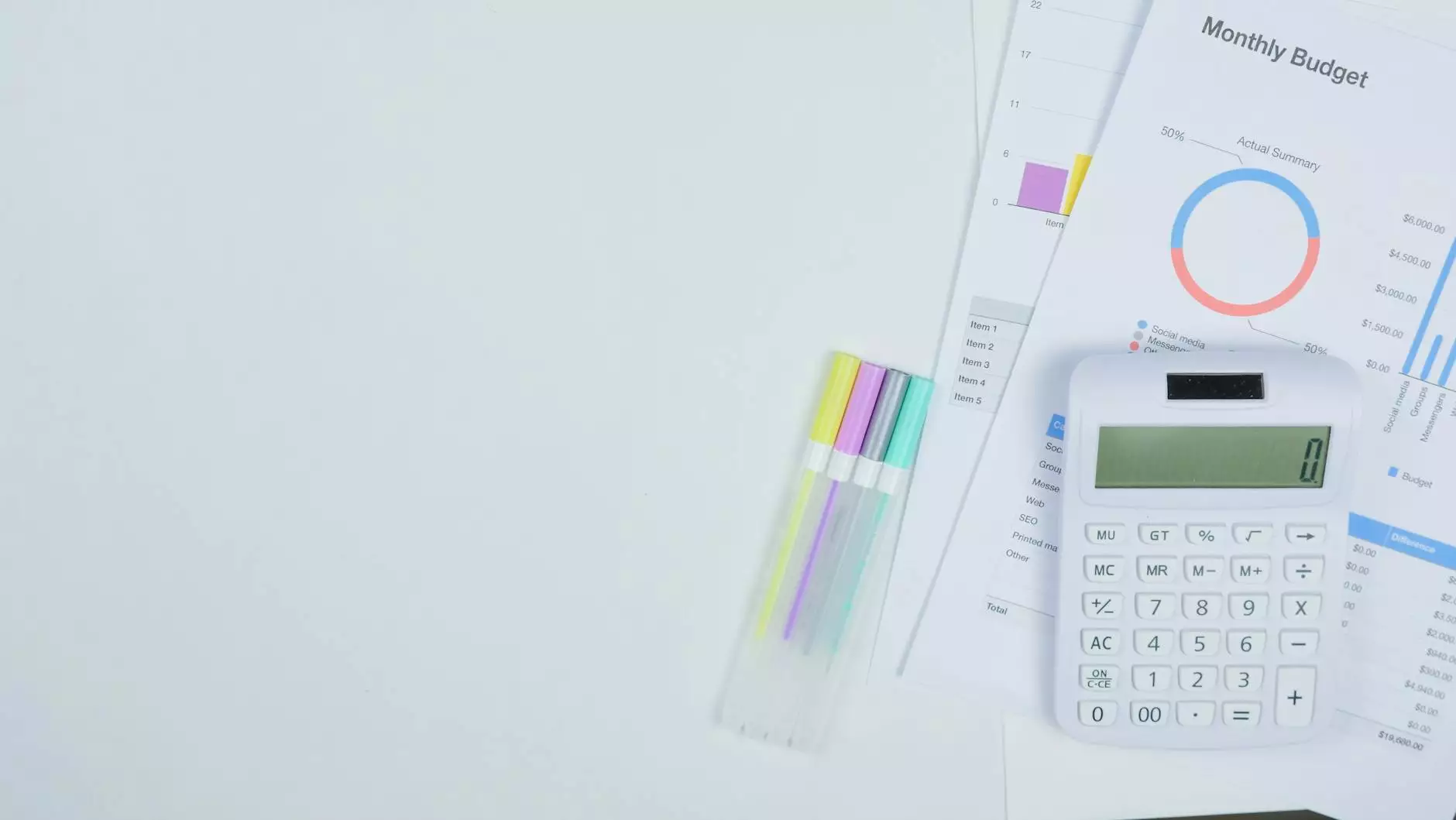Understanding Accountant Costs for Self Assessment

In the realm of financial responsibilities, self-assessment can often be daunting for many individuals, particularly those who lack extensive experience in managing their personal taxes. Hiring an accountant can greatly simplify this process. However, understanding the accountant cost for self-assessment is crucial for making informed decisions. In this comprehensive guide, we will explore the various aspects of accountant costs related to self-assessment in the UK, along with insights on how to maximize the value of your investment.
What is Self-Assessment?
Self-assessment is a system used by HM Revenue and Customs (HMRC) to collect Income Tax. Individuals and businesses are required to report their income and expenses through a tax return, which is submitted annually. This system primarily applies to self-employed individuals, certain partnership members, and those with complicated tax affairs.
Why You Might Need an Accountant
While it is possible to navigate the self-assessment process independently, many individuals opt to hire an accountant for several reasons:
- Expertise and Experience: Accountants have specialized knowledge of tax laws and regulations, ensuring compliance and optimization of tax liabilities.
- Time-Saving: Preparing a self-assessment tax return can be time-consuming. An accountant can handle this task efficiently, freeing you to focus on other important aspects of your life or business.
- Stress Reduction: Dealing with tax issues can be overwhelming. An accountant alleviates this stress by managing the entire process on your behalf.
- Maximized Deductions: Accountants can identify deductible expenses you may overlook and ensure you pay only what you owe—no more, no less.
How Much Does an Accountant Cost for Self Assessment?
Understanding the accountant cost for self-assessment is essential for budgeting purposes. The costs can vary significantly based on various factors:
Factors Influencing Accountant Fees
- Complexity of Your Tax Affairs: The more complicated your income sources (such as rental properties, freelance work, or investments), the higher the fees generally will be.
- Expertise of the Accountant: Senior accountants or those with specialized qualifications may charge more for their services.
- Location: Costs can differ based on geographical location. Accountants in larger cities or affluent areas typically have higher rates.
- Service Options: Some accountants provide tiered packages, and the level of service will influence the total cost.
Average Costs
While costs can vary, the following provides a general idea of what to expect regarding accountant cost for self-assessment in the UK:
- Basic Self-Assessment: £150 to £300
- Intermediate Self-Assessment with Additional Income Sources: £300 to £600
- Complex Self-Assessment involving Multiple Income Streams: £600 and above
Note that these figures are approximate and can fluctuate based on the accountant and your specific circumstances.
What Services Do Accountants Provide?
Accountants offer a range of services that go beyond simply filing tax returns. Understanding what they can do for you can help justify the costs:
- Account Creation: Setting up your records for easy tracking of income and expenses.
- Tax Return Preparation: Completing and submitting your tax return accurately and on time.
- Financial Advisory: Providing insight into managing finances, investments, and tax strategies.
- Tax Planning: Offering strategies to minimize tax liabilities in future tax years.
- Representation: Acting on your behalf during HMRC inquiries or audits, ensuring compliance and resolution.
How to Choose the Right Accountant
Selecting the right accountant is paramount to your financial success. Here are key factors to consider:
- Qualifications: Ensure the accountant is qualified and registered with a recognized body such as the ACA or ACCA.
- Experience: Look for someone who has substantial experience in self-assessment and your specific industry.
- Transparency: The accountant should provide a clear breakdown of their fees and services upfront.
- Client Reviews: Research testimonials and reviews from other clients to gauge satisfaction and reliability.
- Communication: Choose an accountant who communicates effectively and is readily available to address your concerns.
Benefits of Hiring an Accountant for Self Assessment
Investing in an accountant can yield significant benefits that often outweigh the costs:
- Time Efficiency: Accountants can save you countless hours, especially during tax season.
- Reduced Risk: An experienced accountant minimizes the risk of errors, which can lead to fines or penalties from HMRC.
- Increased Refunds: Many clients find that the deductions and credits recommended by accountants outweigh the cost of their services.
- Clarity on Tax Liabilities: Knowing what you owe in taxes can provide peace of mind and better financial planning.
Conclusion
Understanding the accountant cost for self-assessment is essential for making informed choices about your financial management. Accountants bring invaluable expertise and savings that surpass their fees, making them a beneficial investment. For those navigating self-assessment in the UK, hiring a knowledgeable accountant can simplify the process, ensure compliance, and ultimately enhance your overall financial well-being.
Contact Us
If you are considering hiring an accountant for self-assessment, Kernow Ltd is here to help. Our dedicated team of professionals offers a range of services tailored to meet your needs. Contact us today to learn more about how we can assist you with your self-assessment and ensure you receive maximum value from your investment.









